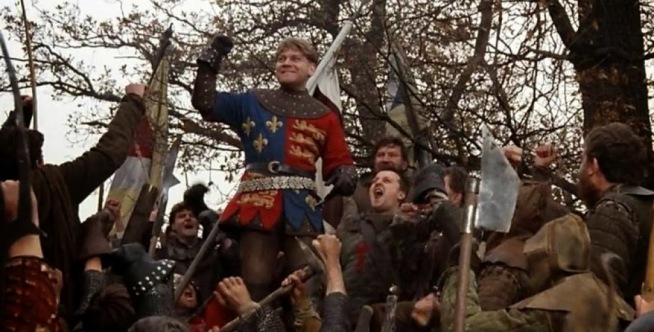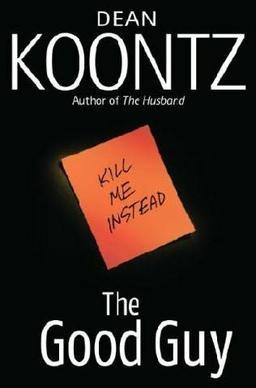Shakespeare's work, as much as any other, embodies what I mean when I say "Truth is no stranger to fiction." His plays are are filled with illustrations of biblical principles, two of which stood out for me recently as I revisited a few of my favorites.
First,
Henry V provides a wealth of insight into how we can "fight the good fight," as Paul tells Timothy in 1 Timothy 1:18, and how we can motivate others to do so. When I think about the spiritual warfare we face, Shakespeare's words in Henry V often come to mind... "Once more unto the breach!" Here's that part of the play, with King Henry leading his troops at the battle of Harfleur:
Once more unto the breach, dear friends, once more;
Or close the wall up with our English dead.
In peace there's nothing so becomes a man
As modest stillness and humility:
But when the blast of war blows in our ears,
Then imitate the action of the tiger!

Then later, at the battle of Agincourt, in the famous "St. Crispian's Day" speech, notice especially the different ways that Henry motivates his troops, and imagine that God is using these ideas to engage you in the real ongoing battle against the world, the flesh, and the devil...
WESTMORELAND.
O that we now had here
But one ten thousand of those men in England
That do no work to-day!
KING.
What's he that wishes so? My cousin Westmoreland?
No, my fair cousin.
If we are mark'd to die, we are enow
To do our country loss; and if to live,
The fewer men, the greater share of honour.
God's will! I pray thee, wish not one man more.
By Jove, I am not covetous for gold,
Nor care I who doth feed upon my cost;
It yearns me not if men my garments wear;
Such outward things dwell not in my desires;
But if it be a sin to covet honour,
I am the most offending soul alive.
No, faith, my coz, wish not a man from England.
God's peace! I would not lose so great an honour
As one man more, methinks, would share from me
For the best hope I have. O, do not wish one more!
Rather proclaim it, Westmoreland, through my host,
That he which hath no stomach to this fight,
Let him depart. His passport shall be made,
And crowns for convoy put into his purse.
We would not die in that man's company
That fears his fellowship to die with us.
This day is call'd the feast of Crispian.
He that outlives this day, and comes safe home,
Will stand a tip-toe when this day is named,
And rouse him at the name of Crispian.
He that shall live this day, and see old age,
Will yearly on the vigil feast his neighbours,
And say, "To-morrow is Saint Crispian."
Then will he strip his sleeve and show his scars,
And say, "These wounds I had on Crispian's day."
Old men forget; yet all shall be forgot,
But he'll remember with advantages
What feats he did that day. Then shall our names,
Familiar in his mouth as household words,
Harry the King, Bedford, and Exeter,
Warwick and Talbot, Salisbury and Gloucester,
Be in their flowing cups freshly rememb'red.
This story shall the good man teach his son;
And Crispin Crispian shall ne'er go by,
From this day to the ending of the world,
But we in it shall be remembered,
We few, we happy few, we band of brothers.
For he to-day that sheds his blood with me
Shall be my brother; be he ne'er so vile,
This day shall gentle his condition;
And gentlemen in England now a-bed
Shall think themselves accurs'd they were not here,
And hold their manhoods cheap whiles any speaks
That fought with us upon Saint Crispin's day.

As you read that, did you notice all the different ways that Henry motivated his men? (If not, go back and see if you can identify them...it's fun!). He did so by the promise of reward, the shame of cowardice, personal satisfaction for the present and the future, leaving a legacy to the next generation, friendship and community with others, redemption from past sins, and a sense of great accomplishment. I love all those aspects of the speech because they all reflect
biblical motivations that the Scriptures provide for us as well! That's why you should "fight the good fight, keeping faith and a good conscience," as Paul told Timothy.
Secondly, revisiting
Hamlet reminded me of a pet theory of mine, which is about how Shakespeare and the Reformation are more related to one another than a cursory observer might think. I would love to write a paper/article on this issue sometime, if I ever become disabled or otherwise end up with the time I would need to write everything I want to! But I'll give you a little taste here...
The Bard lived in a post-Reformation England, of course, and although he dabbled in Roman Catholicism (a "rebel heart" manifesting itself?), he no doubt was influenced by the brighter lights of the Protestant movement (and perhaps inspired to some of his biting satire by the darker parts). One of the most interesting examples of this, that almost no one is aware of, is in the beginning scenes of Hamlet, where he makes the point at least twice (it might be three times, I can't remember right now) that the young prince of Denmark was headed to school in
Wittenberg--yes, the same German city where Luther had taught--before his evil uncle talked him into staying at the castle. The implication, to me at least, is that if Hamlet would have gone to Wittenberg, he would have learned about the grace of the cross and all the tragedies in this tragedy would have been avoided! In case you think that's too much of a stretch, I would add that Horatio, who represents the moral compass of the play (notice he's the only character who remains pure), was already enrolled in the school at Wittenberg and had spent the previous year there. It's all in the play...check it out some time if you don't believe me!







